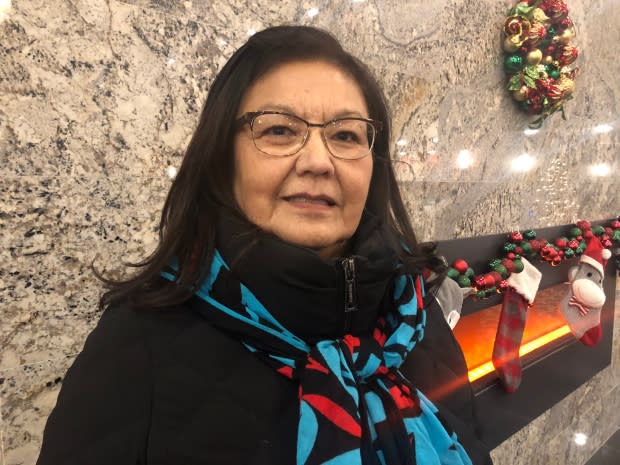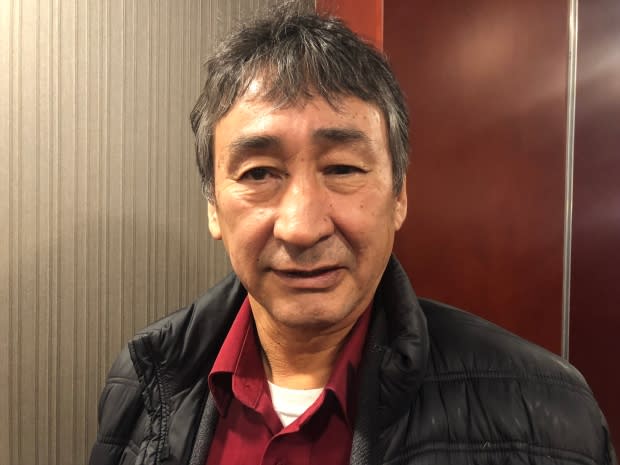'Looks like a dark cloud' for the N.W.T.'s economy, say Indigenous leaders
The Northwest Territories' economy is in bad shape, according to Indigenous leaders who took part in a forum in Yellowknife this week.
Several economic experts spoke at the Indigenous Leaders Economic Forum about the state of the territory's economy, according to Gladys Norwegian, grand chief of the Dehcho First Nations. Their consensus was that "it looks like a dark cloud for us in the N.W.T," she said.
"It hasn't fully recovered from the downturn, or the economic crisis in 2007," said Premier Bob McLeod ahead of his speech at the forum Wednesday afternoon.
Around 800 jobs have been lost in the territory since 2007, he said.
"We've seen about $20 billion worth of potential investments that did not materialize … and we haven't found anything to replace it with."
McLeod did not provide examples to CBC of where the territory missed out on this money.

Discussions at the forum included mining in the territory, infrastructure, transportation, climate change and the oil and gas industry.
Darrell Beaulieu is the CEO of Denendeh Investments Inc., which represents the interests of Dene in the Northwest Territories.
The company's website says it is a "significant player" in northern Canada's economy, and is a partial owner of a contracting corporation, Northland Utilities, and a mining exploration business, among other holdings.
According to a document from the Dehcho First Nations' leadership meeting in November, Denendeh Investments hasn't turned a profit in six years.
"One of the businesses we've been in is oil and gas," Beaulieu explained. Between 2014 and 2016, capital spending in Canada's oil and gas industry dropped by more than half, and Beaulieu said the industry hasn't recovered.
"It's a huge thing," said Beaulieu. "If no company is wanting any drilling, our rigs don't work. That's the bottom line."
'We need to come together'
As far as what happens next, leaders say there's still a lot of talking to do before any action.
"We need to come together," said Norwegian. "We need to work in partnership to ensure that we work toward a common goal and strengthen ourselves for the future generation."
Norwegian said for now, Indigenous governments need to "keep an eye" on the economy.
"A solution is making sure that we clarify with the members of our communities and [make] sure that we keep it alive and moving forward," she said.

McLeod said business opportunities in the territory need to be marketed more, and stressed that governments have to "work together to create a positive environment for investment."
"We have to diversify our economy," he said. "We need more investment in infrastructure, and we need more innovation if we're going to move to new business[es]."
McLeod said the territorial government is working with the federal government to develop an Arctic and Northern policy framework.
"That will set out the vision for Canada, for the North, for the next 30 years and we hope that will be one of the catalysts to boost our economy so we can begin to improve," he said.

